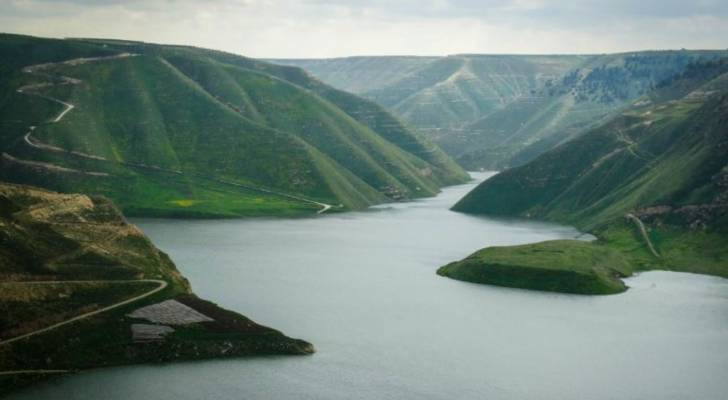Al-Wehda Dam on the border between Jordan and Syria.
Can Jordan’s deal with Syria help solve its water poverty?
Dr. Duraid Mahasneh, head of the EDAMA Association for Water and Energy, said Sunday that the “true turning point” in the water-sharing agreement for the Al-Wehda and Yarmouk Dams with Syria lies in the intentions of both parties, rather than the figures discussed so far.
Read more: Jordan and Syria agree to share Yarmouk River water, address wells issue
Syrian Violations Drastically Cut Jordan's Water Share
Speaking to Roya, Mahasneh said that Syrian transgressions in the Yarmouk basin between 2005 and 2010 significantly reduced Jordan's water allocation.
Despite the Al-Wehda Dam capacity to store 300 million cubic meters, Jordan has received only 20 to 26 million cubic meters annually in recent years.
Mahasneh described the new preliminary water-sharing agreement as a welcome and positive step, but he stressed that the fundamental issue is the non-implementation of the 1987 agreement. That accord stipulated the permissible number of dams and wells on the Syrian side of the basin.
Discrepancy Between Agreements and Reality
Mahasneh pointed out that Syria is drastically different, with over 42 dams now constructed and numerous wells drilled extensively, severely impacting Jordan's water share.
He also highlighted Syria's agricultural shift from grain cultivation to irrigated farming, which led to increased water extraction from shared dams, further diminishing Jordan's supply.
He explained that in good rainfall years, the Al-Wehda Dam used to provide Jordan with around 400 million cubic meters of water, a figure that has plummeted to below 50 million cubic meters in recent years.
Jordan's Vulnerability and Call for Fairer Agreement
Regarding Jordan's inability to increase its water share as Syria has, Mahasneh clarified that the basin's water primarily originates from the Syrian side, not the Jordanian.
He said that a fair new agreement between the two countries is essential, given Syria's multiple other water sources and Jordan's severe water scarcity.
Despite some optimism that the new agreement might resolve Jordan's water crisis, Mahasneh cautioned that it alone would not fully address the problem, noting that Jordan's vital National Carrier project, while important, is insufficient to meet the Kingdom's water needs.
Dire Water Scarcity and Path Forward
Jordan is one of the most water-poor countries in the world. The per capita water share, which stood at 120 cubic meters before the Syrian crisis and refugee influx, has now halved to 65 cubic meters.




